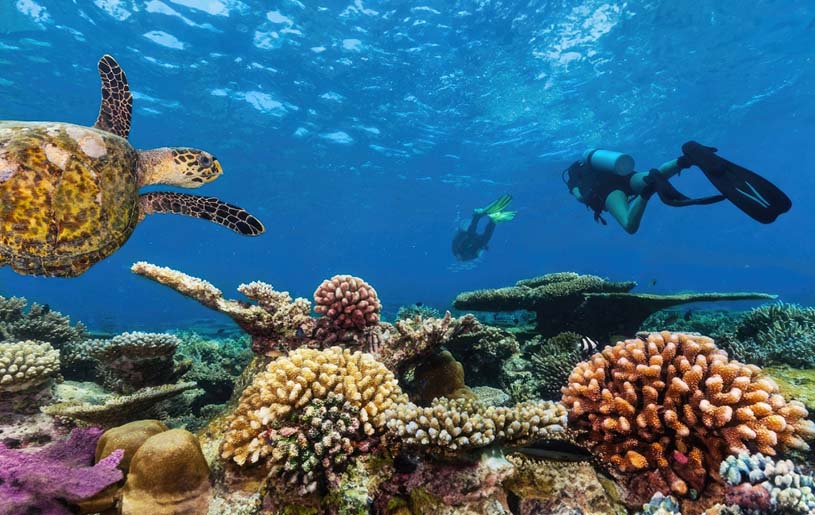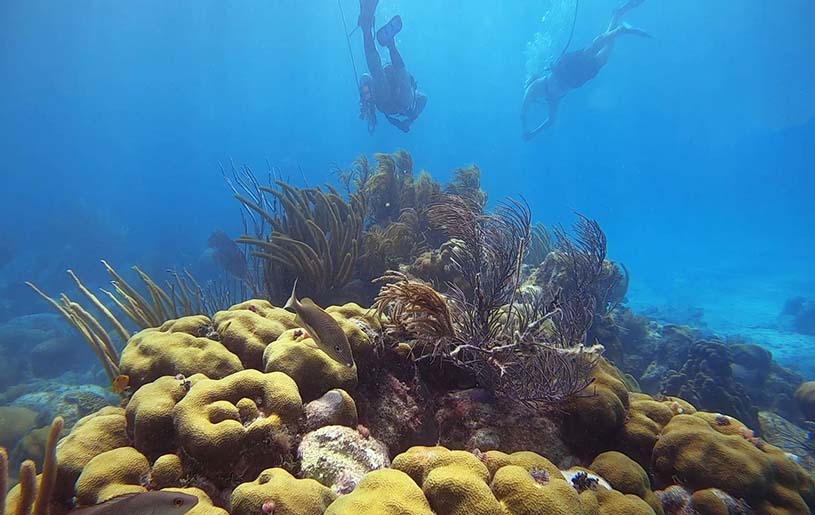Venturing into the enchanting world beneath the ocean’s surface is a cherished aspiration for many. The allure of vibrant coral reefs, exotic marine life, and crystal-clear waters captivates adventurers from all corners of the globe. However, whether you’re donning scuba gear or simply snorkeling, underwater exploration requires mindfulness and reverence for the delicate marine ecosystem.
Preparing for Your Subaquatic Expedition
Physical Wellness
Before embarking on any underwater journey, assess your physical health. Ensure that you are in prime condition, free from any respiratory or cardiovascular issues that might pose a risk during diving or snorkeling activities.
Skill Development
For those new to diving or snorkeling, consider enrolling in certified courses. Professional training not only hones your skills but also instills critical safety practices.
Gear Inspection
Conduct a meticulous examination of your equipment before each dive or snorkel. Verify that all gear, including masks, snorkels, regulators, and buoyancy control devices (BCDs), is in optimal working condition.
Safety Precautions for Diving

Buddy System
Never embark on a dive alone; always have a buddy by your side. The buddy system is a foundational safety measure that ensures you have assistance readily available in case of emergencies.
Equalize Pressure
Frequently equalize pressure in your ears and sinuses while descending to prevent barotrauma. Ascend gradually and continuously to mitigate the risk of decompression sickness.
Monitor Air Supply
Maintain close monitoring of your air supply and ascend with a safe reserve of air remaining in your tank. Ascend to shallower depths with sufficient time for mandatory safety stops.
Responsible Diving Etiquette
Refrain from touching or collecting marine life, and take care not to disturb the fragile coral. Always adhere to responsible diving practices.
Safety Guidelines for Snorkeling

Choose Safe Locations
Select snorkeling sites appropriate for your skill level. Calm, shallow waters with good visibility are ideal for beginners.
Master Efficient Breathing
Acquire proficiency in relaxed and efficient breathing techniques. Keep your snorkel above the water’s surface to maintain a consistent air supply.
Employ Proper Equipment
Ensure that your snorkeling gear fits comfortably and securely. Test the seal of your mask before entering the water.
General Safety Precepts
Respect for Marine Life
Show respect to the underwater inhabitants. Do not touch, feed, or disturb marine creatures, and maintain a safe distance to protect both yourself and the environment.
Preservation of Coral Reefs
Avoid any contact with or standing on coral reefs, as even minor contact can result in irreparable damage. Practice buoyancy control to prevent inadvertent contact.
Sun Protection
Shield yourself from the sun’s harmful rays while snorkeling by applying waterproof sunscreen and wearing protective clothing.
Hydration
Proper hydration is vital. Consume water before and after your underwater activities to prevent dehydration.
Preparation for Emergencies
Familiarity with Emergency Procedures
Acquaint yourself with emergency protocols for both diving and snorkeling, including first aid for injuries from marine life.
Communication Tools
Carry signaling devices like whistles, surface markers (safety sausages), and underwater slates for effective communication.
Emergency Contacts
Inform someone on land about your dive or snorkel plans, including your anticipated return time and location.
Exploring the mesmerizing realm of coral reefs is an unparalleled adventure, but safety should always be the paramount concern. By adhering to these indispensable safety guidelines, you can ensure that your underwater escapades are not only pleasurable but also respectful of the fragile marine ecosystem.


